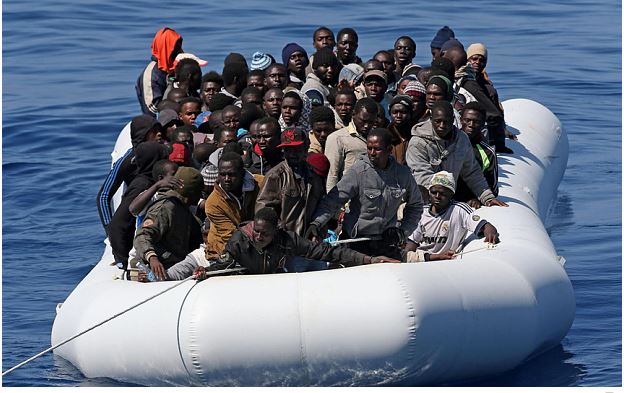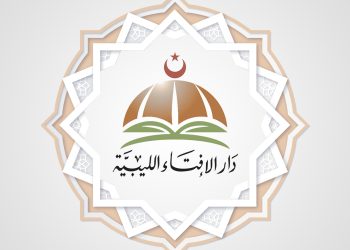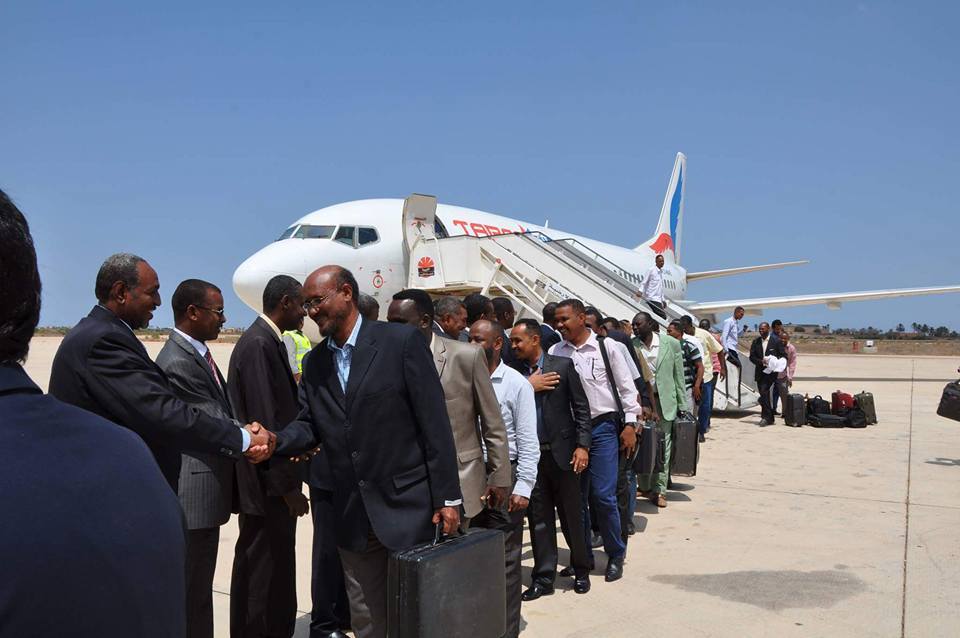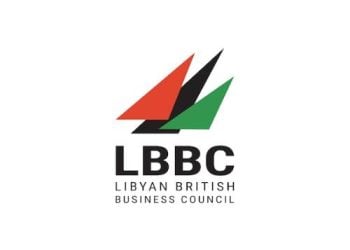By Sami Zaptia.
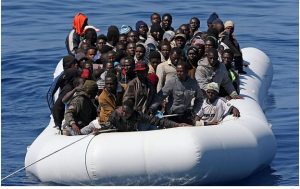
London, 15 August 2016:
IOM’s Missing Migrants Project reports migrant and refugee fatalities in the Mediterranean have already surpassed the total for the first eight months of 2015. The project recorded the deaths of 3,151 migrants and refugees up to Thursday 11 August, including 20 bodies recovered off Libya last week.
IOM Libya reported that in its latest update from Libyan authorities one body washed ashore on 8 August at Al Zawiyah. The victim – of unknown nationality – is believed to have been from a boat that sunk 3-4 days prior, which witnesses estimate was carrying 182 passengers.
Meanwhile, IOM has found that 76 percent of almost 1,400 migrants and refugees interviewed in Italy from 24th of June to 3rd August 2016 – and who travelled along the Central Mediterranean Route connecting North Africa to Europe – have responded positively to at least one indicator of the presence of human trafficking and other exploitative practices on the route.
These exploitative practices reported by migrants included being offered cash in exchange for giving blood, organs or body parts. The report says that according to the majority of respondents, these instances took place in Libya.
The anonymous surveys are designed to provide reliable data on the environments through which migrants and refugees make their journey, the hazards and risks that they face, and their often extreme vulnerability.
The recent findings – which are the first from new efforts in Italy to monitor migration flows through North Africa – provide strong evidence of predatory behaviour by smugglers and traffickers and the kinds of enabling environments within which trafficking and associated forms of exploitation and abuse thrive.
A significant proportion of migrant and refugee respondents reported direct experiences of abuse, exploitation, or practices which may amount to human trafficking. Such experiences range from not receiving agreed payment for work or services, to being kidnapped and tortured. In the majority of cases experiences were reported to have happened in Libya.
The findings from Italy follow an expansion of operations and ongoing data collection that started earlier this year along the Eastern Mediterranean Route. These most recent findings, however, show that rates of positive response to one of the indicators from migrants and refugees surveyed in Italy are up to seven times higher than the rates of positive response to the same survey conducted on the Eastern Mediterranean Route.
Five percent of respondents also said that a member of their family travelling with them had experienced situations captured by one of the trafficking and exploitation indicators.
Approximately 5 percent of respondents also reported that they knew of instances where people on the journey had been approached by someone offering cash in exchange for giving blood, organs or body parts. According to the majority, these instances took place in Libya and, to a lesser extent, in Egypt.
Some migrants told interviewers that they had no choice but to give their blood, while being held captive. Indeed, 81 percent of those who witnessed these instances of coerced blood-giving, also reported of having been kept in a closed location against their will.
“Two trends that we are extremely concerned about are the nearly 13,000 unaccompanied minors that have arrived in Italy this year and the 5,346 Nigerian women of which we estimate that 80 percent are trafficked,” said Federico Soda, Director of the IOM Coordination Office for the Mediterranean in Rome.
“So far this year in Italy, IOM has already identified over 200 trafficked persons at the landing points, including underage girls, some as young as 13. We are also aware that the threats and violence perpetrated by traffickers against the families of the victims back in their country of origin is getting more and more devastating,” he added.
“The increase in the number of unaccompanied minors is also extremely concerning. These minors are highly vulnerable and at risk of trafficking for sexual exploitation and labour. Often they are totally unaware of this reality. Protection systems throughout the migration process need to be strengthened in order to find solutions that are in the best interest of the child and that guarantee the rights that they have,” he noted.
Respondents who answered positively to one of the indicators average 23 years old; a majority of all positive responses (52 percent) were given by migrants and refugees between 18 and 25 years old. The highest rates of positive responses came from Gambians (91 percent), Ghanaians (91 percent), Guineans (90 percent) and Ivorians (86 percent).
Within North Africa, the IOM has undertaken an array of initiatives to combat human trafficking, working with migrants, governments, NGO partners, civil society and host communities alike.
In Libya, direct assistance is provided to migrants rescued at sea, stranded migrants, and migrants in detention, including immediate relief such as consumables and a change of clothes, as well as more extensive medical and psycho-social care. IOM continues to work with the Libyan Coast Guard on the identification of victims of trafficking so that appropriate protection measures can be extended to migrants who have been trafficked.
The IOM has undertaken information campaigns in Libya, Tunisia, Egypt, and Italy to ensure that migrants and citizens at risk of pursuing irregular migration are made aware of the hazards, such as human trafficking, including in particular along the Central Mediterranean Route.
